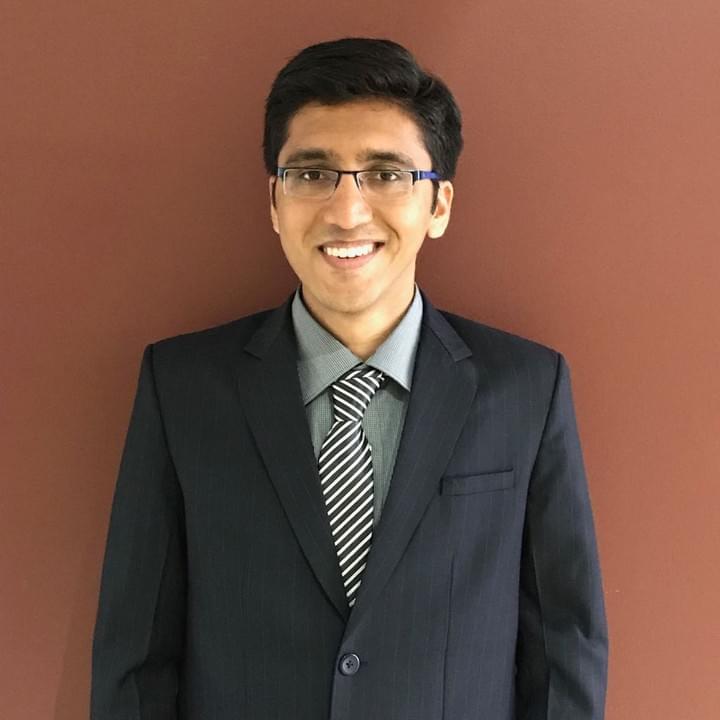
About Me
Hello world! I am Ishan Khurjekar.
Update: I am a now a postdoctoral fellow at the Johns Hopkins University !! (new website)
Over the years, I have worked on multiple projects with 1 aspect in common: sensing. Sensing methods are the mainstay of scientific and engineering innovation. For example, sensing methods are used for locating submarines in the sea or damages in structures or even imaging objects which are invisible to the eye.
I enjoy researching and developing methods to understand, quantify, and manage the effects of uncertainty in various sensing-based engineering / scientific applications. My research goal is to enhance the reliability and utility of machine learning (ML) methods for such applications. My past + current work has focused on these topics:
- Uncertainty quantification: Develop techniques to assess the reliability of ML methods when external uncertainty sources are present in the data.
- Uncertainty management: Develop ML methods that are robust to external variations present during data collection.
- Utility enhancement: Obtain interpretable insights from ML models trained on sensing data to elucidate the underlying complex physical processes.
I am open to new collaborations and am generally excited to talk about anything research-related!
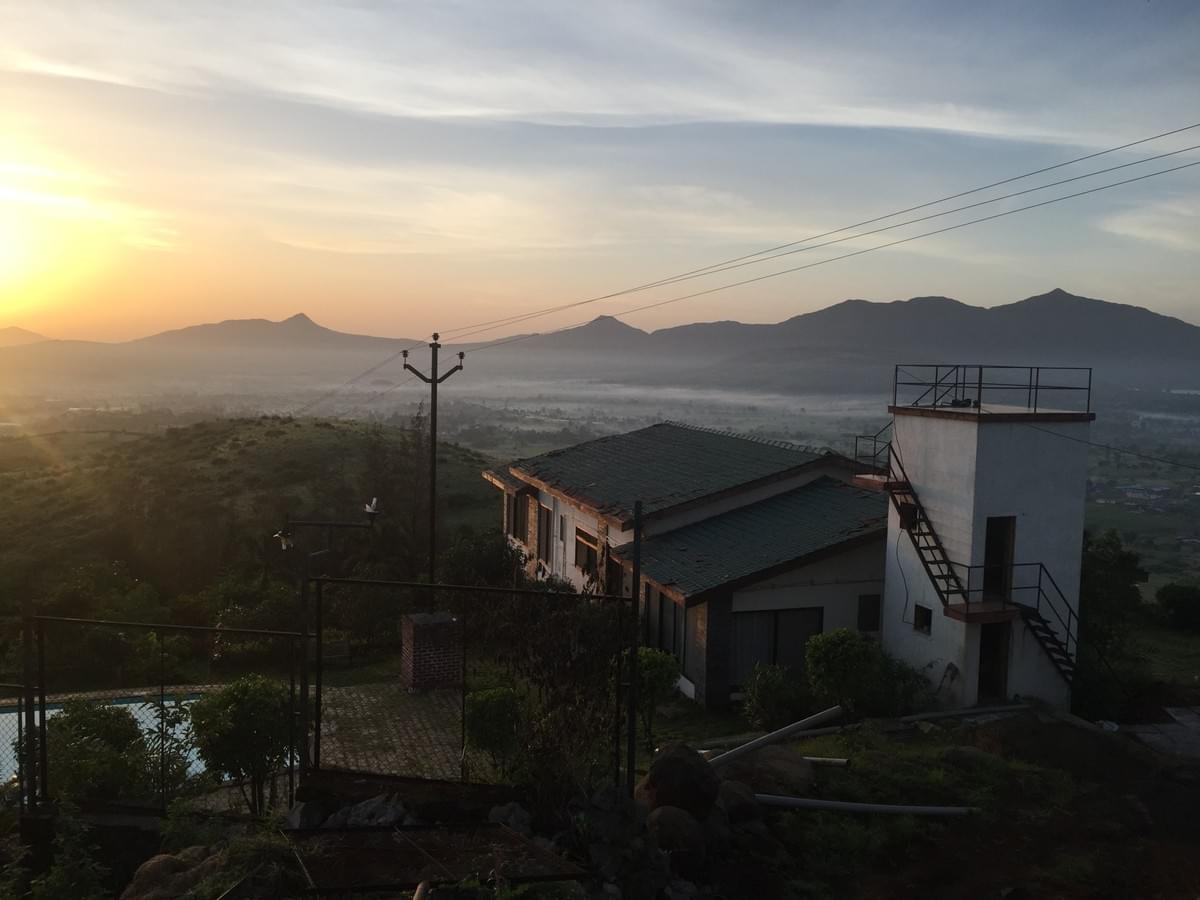
Uncertainty quantification
1. Principled UQ for inverse problems in acoustical signal processing [JASA'23, ASA'23, IEEE MLSP'23]: Slides
We consider the acoustic inverse problem of direction-of-arrival (DOA) estimation. We want to provide statistically valid and easy-to-obtain uncertainty intervals for the DOA estimate in the presence of external uncertainty. Conformal prediction (CP) technique is suited for this task. CP takes in predictions and produces an interval containing the true value with a statistical guarantee. We demonstrate the usage of CP with multiple machine-learning models trained for DOA estimation. CP is able to produce uncertainty intervals that are statistically valid and can reliably assess the DOA estimation performance in the presence of uncertainty.

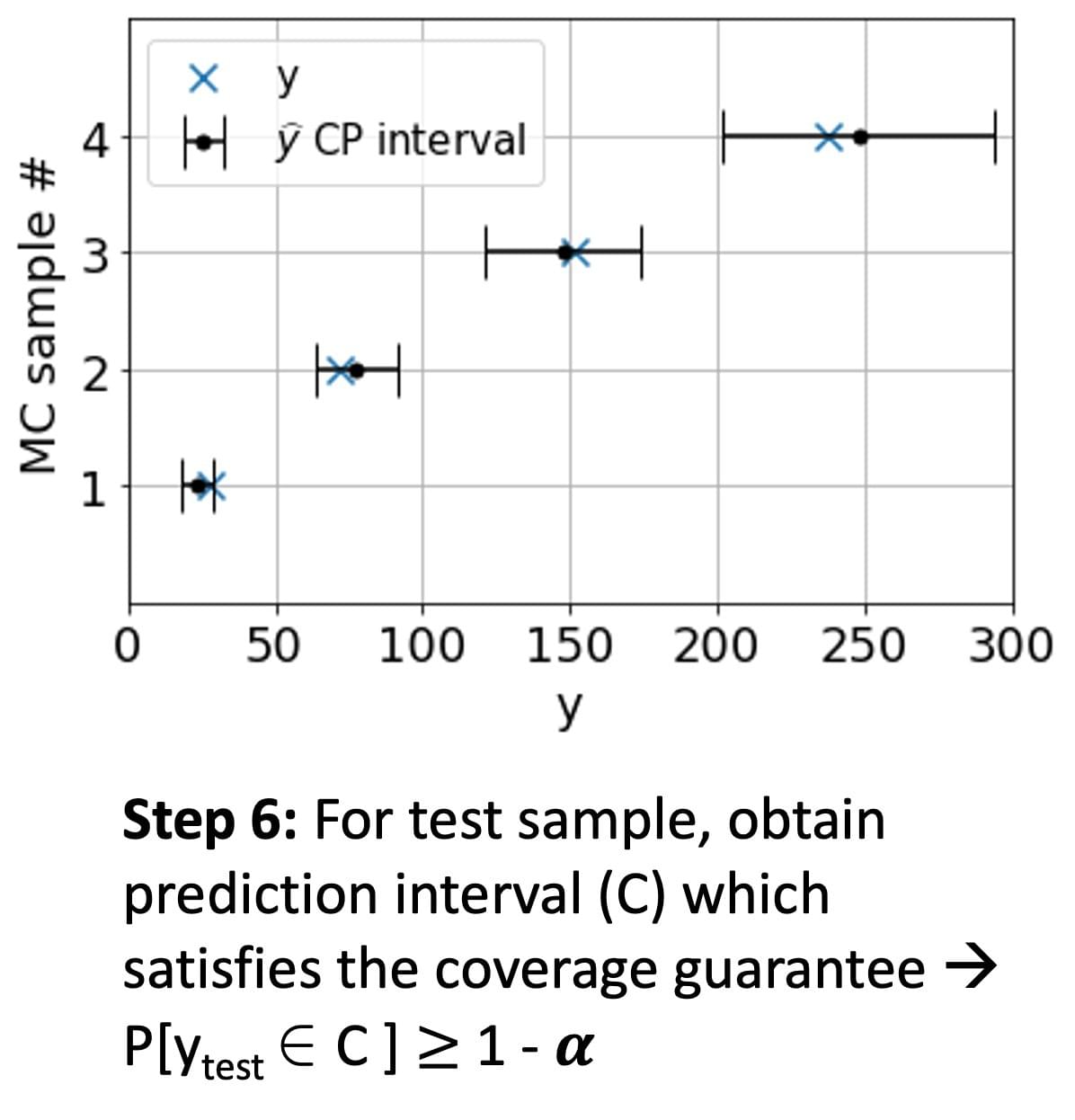
Uncertainty management
1. Reliability assessment for structural health monitoring [NDT&I submitted]: Slides
We consider the task of assessing the reliability of a guided-wave structural health monitoring system. In a structural monitoring setup, sensors transmit and receive guided waves. Based on the received signals, we want to localize the damage. The challenge is to assess the reliability of localization predictions when external uncertainties are present. We analyze the ability of multiple deep-learning methods to represent the reliability of individual damage localization estimates in the presence of external uncertainty. We are able to obtain a heuristic uncertainty estimate in a simple and scalable manner.
2. Uncertainty management for structural health monitoring [JASA'22, ICASSP'22]: Slides
Here we demonstrate the ability of specialized machine learning techniques to generate robust predictions in the presence of external sources of uncertainty. We show that the ensemble of deep neural networks trained solely on simulated observations with adversarial perturbations provides improvements in damage detection and localization performance over baseline methods.
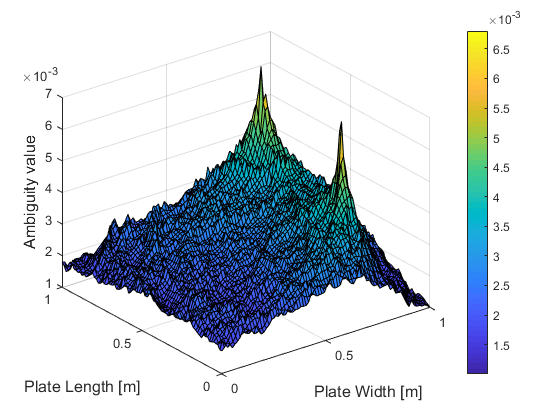
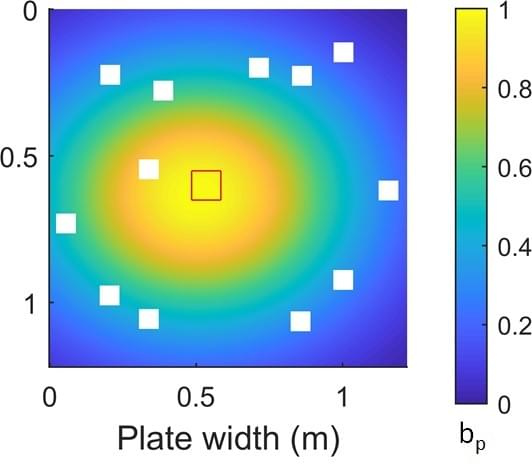
Enhancing utility
1. Obtaining interpretable insights for grain growth [Frontiers'23, QNDE'22]:
Grain growth in polycrystalline materials is a complicated physical process. Application of external heat or pressure results in a particular grain orientation (texture). Identifying the texture property is crucial to understanding the grain growth mechanism. Grain images obtained from a sensing setup can be used for analysis.
We demonstrate the usage of convolutional neural networks to classify grain images from a scanning electron microscope (sensing setup) in an automated manner. Further the intermediate features of the convolutional network provide potential insights about the grain growth mechanism.
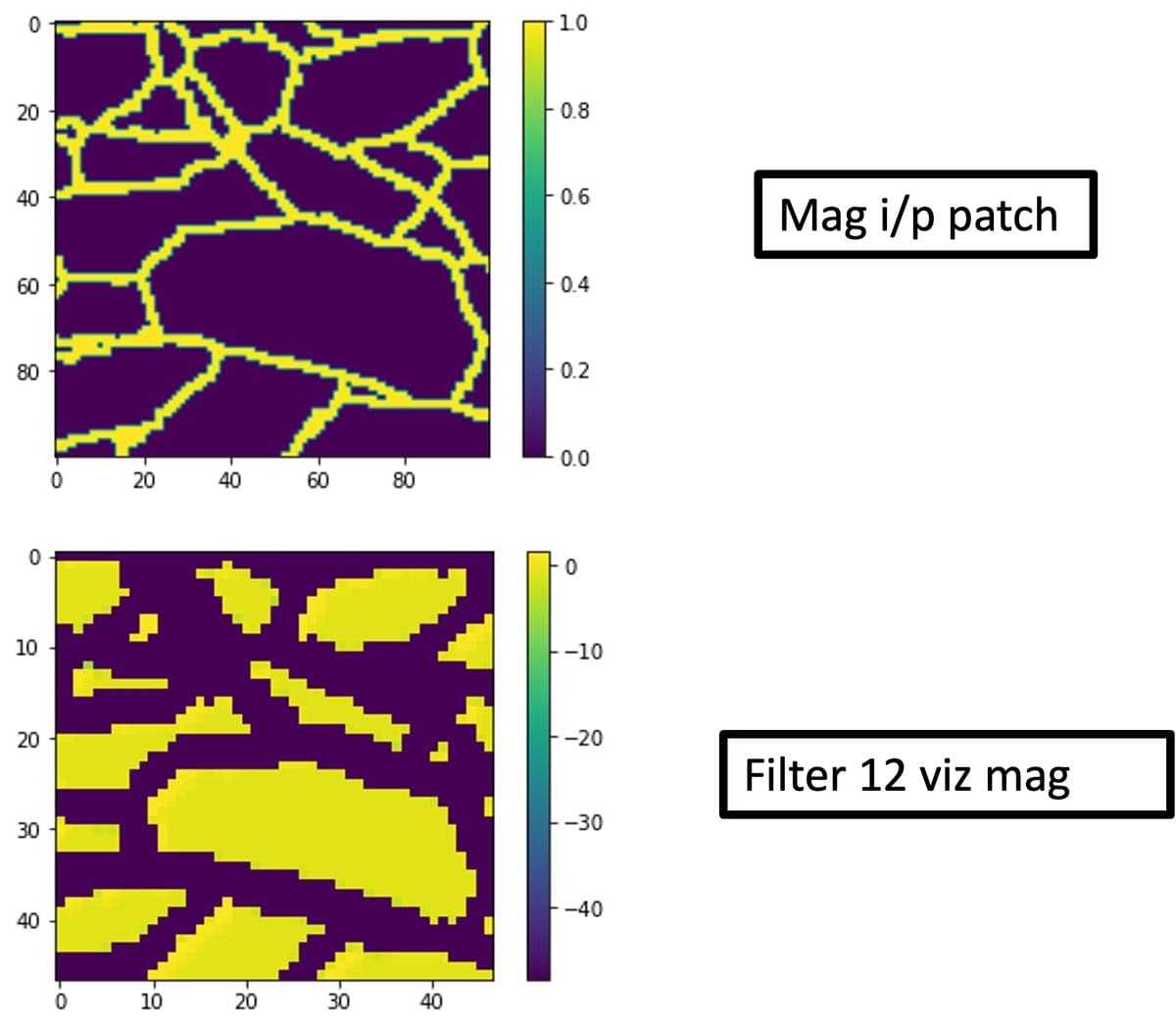
Publications
Journals
Uncertainty quantification for DOA estimation with conformal prediction
I. Khurjekar and P.Gerstoft
Journal of Acoustical Society of America (to be published)
I. Khurjekar, B Conry, MS Kesler, MR Tonks, AR Krause, JB Harley
Frontiers in Materials.
Hierarchical transfer learning for deep learning velocity model building
Jérome Simon, Gabriel Fabien-Ouellet, Erwan Gloaguen, I. Khurjekar
Society of Exploration Geophysicists.
I.Khurjekar and J.B.Harley,
Journal of Acoustical Society of America.
Preprints:
Uncertainty Aware Deep Neural Network for Multistatic Localization with Application to Ultrasonic Structural Health Monitoring.
I.Khurjekar and J.B.Harley.
Conferences
DOA uncertainty quantification with conformal prediction
I. Khurjekar and Peter Gerstoft
IEEE International Workshop on Machine Learning and Signal Processing, 2023, Rome, Italy.
Direction-of-arrival estimation using Gaussian process interpolation
I. Khurjekar, Peter Gerstoft, Christoph F. Mecklenbr ̈auker, Zoi-Heleni Michalopoulou
International Conference on Acoustics, Speech, and Signal Processing 2023, Rhode Island, Greece.
I. Khurjekar and J. B. Harley
International Conference on Acoustics, Speech, and Signal Processing 2022, Singapore
Velocity model building using transfer learning
Jérome Simon, Gabriel Fabien-Ouellet, Erwan Gloaguen, Ishan Khurjekar, Mauricio Araya-Polo.
1st International Meeting for Applied Geoscience & Energy, Denver, USA
Probabilistic deep neural network for robust and interpretable damage localization.
I. Khurjekar and J. B. Harley
13th International Workshop on Structural Health Monitoring, 2021, Stanford, USA
A probabilistic approximation of damage localization strategy in the presence of uncertainty.
I. Khurjekar and J. B. Harley
4th International Conference on Uncertainty Quantification in Computational Sciences and Engineering, 2021, Athens, Greece.
Deep neural network based guided wave damage localization.
I.Khurjekar, J.B.Harley,
46th Annual Review of Progress in Quantitative Nondestructive Evaluation 2019, Portland, USA.Towards minimizing effect of partial fingerprint images on the performance of fingerprint recognition systems.
I.Khurjekar, B.Garware, A.Abhyankar,
International Conference on Information Processing 2015, Pune, IN.Workshops / Meetings
Uncertainty quantification of deep learning based direction-of-arrival estimation with conformal prediction
I. Khurjekar and Peter Gerstoft.
Acoustical Society of America Meeting 2023, Chicago, USA.
Accounting for Physics Uncertainty in Ultrasonic Wave Propagation using Deep Learning.
I.Khurjekar, J.B.Harley,NeurIPS 2019 Workshop on Machine Learning and Physical Sciences, Vancouver, CA.
Experience
Internships
Total E&P Research & Technology USA, LLC
June'20 - Aug'20
- Researching deep learning based seismic inversion for earth sub-surface modeling.
Service
Reviewer for:
- Journal of Acoustical Society of America (JASA) ; Journal of Quantitative Non-destructive Evaluation (QNDE) ; Structural Health Monitoring (SHM)
- IEEE International Conference on Acoustics, and Signal Processing (ICASSP) ; IEEE workshop on Machine Learning and Signal Processing (MLSP)
- NeurIPS Conference
Outreach:
Co-instructed a course on "Foundations on Artificial Intelligence" for high school students at University of Florida in 2021 summer.
Download Resume
Get a copy of my resume. Or contact me for more info.
LET'S CHAT
Copyright 2017
